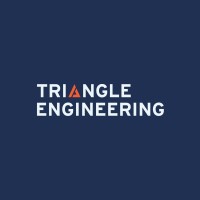
Triangle Engineering, Inc.
Triangle Engineering, Inc. is a 3rd generation family business that provides materials, destructive test equipment and testing services to organizations that must perform welder and weld procedure qualification testing. From 63 years in business, we have the welding code expertise and applied knowledge to supply customers, ranging from the individual welder to global organizations, with the immediate shipment of the specific materials and equipment needed for their weld training or testing requirement.






